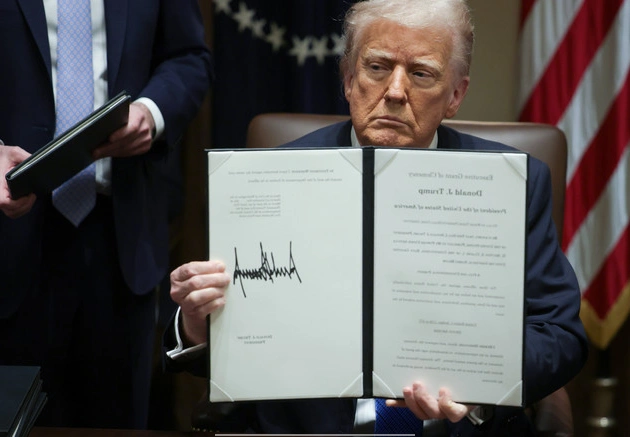
President Donald Trump recently signed a sweeping executive order aimed at changing how elections are administered in the United States. The order focuses on various aspects of election rules, particularly those related to citizenship and mail-in voting.
This executive order has raised concerns among voting rights experts who question the legality and potential impact of the directives outlined within it. The order, if implemented, could significantly alter the way Americans vote and how their ballots are counted, potentially disenfranchising legitimate voters while attempting to prevent illegitimate voting.
The Key Highlights of the Executive Order
One of the central provisions of the order asserts that federal law mandates all states to reject ballots that are not received by Election Day. It instructs the Justice Department to enforce this requirement vigorously, specifically targeting states with a high volume of mail-in voting, such as California and Alaska.
While states currently have the authority to administer elections differently, none permit the counting of ballots cast after Election Day. The issue of ballots being postmarked versus received by Election Day has sparked numerous legal battles, with federal law not explicitly prohibiting states from accepting late-arriving but timely postmarked ballots.
President Trump’s order also mandates the Election Assistance Commission to include proof of citizenship on the national voter registration form. Although states must accept this national form under federal law, they can still create their voter registration documents.
However, the requirement for proof of citizenship can pose a significant obstacle for certain groups, particularly low-income individuals, potentially disenfranchising lawful voters more than deterring fraudulent ones, given the rarity of voter fraud incidents.
Legal and Expert Opinions on the Order
Legal experts have expressed concerns about the legality and authority behind the directives in the executive order. Questions have been raised about President Trump’s ability to direct the Election Assistance Commission to implement certain provisions, with potential legal challenges looming.
Election law specialists emphasize that instances of voter fraud are minimal and already subject to strict prosecution measures. The executive order’s implications, particularly regarding changes to the voter registration process, could have far-reaching effects on millions of registered voters’ ability to participate in federal elections.
As the order faces scrutiny and potential legal challenges, its impact on election rules and voting regulations remains a topic of intense debate among legal scholars, voting rights advocates, and political analysts.











